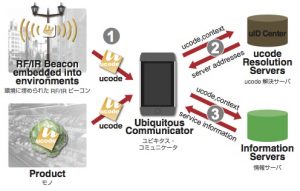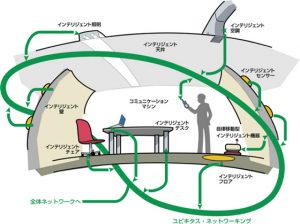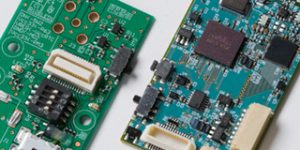情報インフラの確立から社会システムの提案まで、 ICT分野をリードする戦略的拠点A leading strategic ICT center for information infrastructure and social innovation
ユビキタス情報社会基盤センターは、ユビキタス情報技術を活用し、それを社会基盤化するために必要な技術や社会制度などを包括的に研究しています。研究成果を実社会に適用することによって、国内だけでなく世界で顕在化している様々な社会問題の解決に資することを目指しています。
本センターは、2009年4月、情報学環附属研究施設として設立されました。その研究目的は、文部科学省21世紀COEプログラム「次世代ユビキタス情報社会基盤の形成」(2004年度~2008年度)の研究成果を引き継ぎ、学際情報学府学際情報学専攻の総合分析情報学コースの教育と連携して、ユビキタスに関する世界最高の研究教育拠点の中核を担うことです。
そのために、ユビキタス分野の基盤技術である、ユビキタスID技術やT-Engine/T-Kernel、eTRONを用いた、インターネットの次の新世代の情報インフラを確立します。「国際ユビキタスIDセンター」を世界各地に立ち上げ、本センターがその連携の中核となります。また、ユビキタス情報インフラの普及とともに、社会がどのように変化するかということを実証的に研究し、そのために必要な新しい社会システムや制度、法律、ビジネスモデルを考案し、積極的に提案していきます。
本センターにおける研究教育活動を推進することによって、情報科学や社会情報学等の学術的分野の成果を輩出するとともに、さらにそれを社会基盤として実社会に普及させ、顕在化している様々な社会問題を解決していきます。
2014年4月、「ダイワユビキタス学術研究館」が竣工しました。
Research Center for Ubiquitous Information Society Infrastructure is devoted to comprehensive research on the application of ubiquitous computing technology and the establishment of the necessary technical and social prequisites for its implementation as a social infrastructure. It seeks to contribute to the solution of social problems at home and abroad through the application of its research achievements to real-world situations.
The Center was established in April 2009 and continues the work begun under the COE Program “Center for the Study of Ubiquitous Computing Infrastructure” (April 2004 – March 2009). It is closely associated with the Applied Computer Science course in the GSII and is the world’s leading center for the study of ubiquitous computing.
The Center is concerned with establishing next-generation information infrastructure built on the foundation of ubiquitous computing using such technologies as ubiquitous ID tagging, T-Engine/T-Kernel, and eTRON. International ubiquitous ID centers are being established all over the world with the Institute playing a central liaison role. Empirical research is also being carried out to determine how society will change with the spread of ubiquitous computing technology. For this purpose, the Institute is keen to make proposals for new institutions, social systems, legal frameworks and business models.
Daiwa Ubiquitous Computing Research Building opened for use in April 2014.





ユビキタス情報社会基盤研究センター
ユビキタス情報インフラを構築し、その社会的普及のために制度やシステムを提案します。ユビキタス・ネットワーク技術に関する世界的研究拠点です。
Research Center for Ubiquitous Information Society Infrastructure (Japanese Only)
At this global center for ubiquitous network technology, new information infrastructures are being developed, and proposals are being made to increase their use in society.

